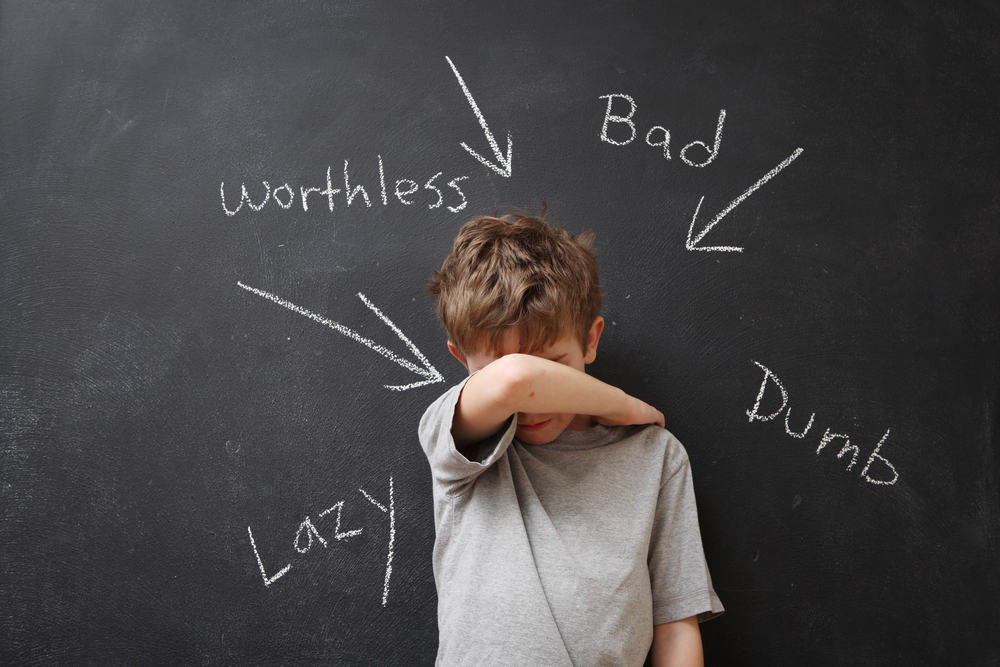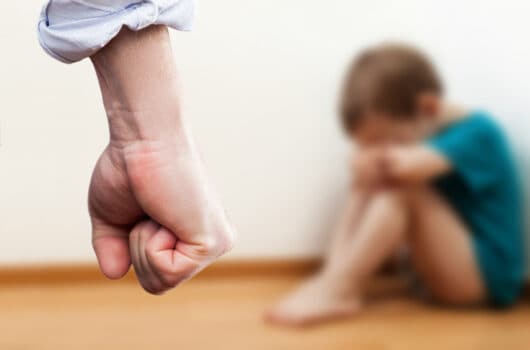Spanking children has always been a controversial topic that elicits an intense debate among parents and pediatricians.
Some view it as an effective disciplinary tactic, while some are fiercely against using corporal punishment. Despite seeming old-school, several parents have admitted to occasionally spanking their child when they’re under stress or when the kid refuses to listen.
With the punishment itself continuing to make headlines, you might have wondered whether spanking is really an effective strategy to get your child to listen to you. Perhaps you wonder how it will affect your child in the long run? Are there other ways in which you can discipline your child?
Read on as we discuss different viewpoints to help you make a well-informed decision.
Why Do Parents Spank Their Children?
Parents who spank their children see it as a useful disciplinary tool. The most common claim being that children will listen and be more obedient as a result. Now, hitting a child can make them compliant immediately, but it isn’t a long-term solution.
It doesn’t teach them why what they did was wrong and what they should have done instead. So they might repeat the same mistake a couple of days later as they don’t know how to behave better.
The other reason is that these parents genuinely believe that hitting isn’t wrong. You see, they have experienced it themselves, having grown up in households where spankings were the norm. Some parents think that kids who aren’t spanked will become spoiled and lack good manners.
There are also times when parents spank their children out of desperation. The child might be misbehaving daily. It’s this constant resistance that makes them think that there isn’t any other alternative that would work.
But you need to understand that spanking won’t work every time.
It’s an act of aggression, and that can have grave consequences for your child’s well-being both emotionally and psychologically. Plus, experts have found that spanking does more bad than good. Although it can be a quick solution to problems, long-term it has a detrimental effect.
Is Spanking Children Legal?
While some experts argue that any form of corporal punishment is equal to child abuse, there is still a big difference between mild spanking, carefully administered out of love, and a hostile type of emotional venting.
But does this difference give parents the legal right to spank their children?
Is It Legal for Parents to Spank Children?
No law in the United States forbids parents to use corporal punishment as long as it doesn’t severely injure a child. However, the definition of what is acceptable when using corporal punishment differs from one state to another.
For example, while the state of Washington permits “reasonable and moderate “force against a child, it has explicitly outlawed actions like kicking, burning, throwing, cutting, shaking, and threatening with a deadly weapon.
For Utahns, the state law allows “reasonable discipline of minors “by parents, but “serious physical injury “is strictly forbidden.
If you go through all state statutes, you’ll find special emphasis given to “reasonable. “As the concept itself is quite vague, it makes law enforcement heavily dependent on interpretation.
You should also note that while these laws allow parents to discipline their children in a “reasonable” manner, it doesn’t extend the same courtesy to other people’s children. For example, if you spank a neighbor’s child who repeatedly misbehaves with you, you might find yourself in a lot of trouble.
The good news here is that parents today are less likely to spank children than parents in the past.
Is It Legal for a Teacher to Spank Students?
Out of the 50 American states, 19 states haven’t outlawed corporal punishment in the classroom if the teacher uses “reasonable and necessary “”non-deadly force “that doesn’t cause any physical injury.
The remaining 31 states prohibit any physical punishment other than the actions necessary to maintain a safe environment.
Teachers have been arrested in the past for child abuse when they got too aggressive with their students. Considering that a school environment should be positive and friendly, school teachers should refrain from spanking their students.
Can Spanking Children Negatively Affect Them?
The American Academy of Pediatrics (AAP) has urged parents to use “healthy forms of discipline “and strongly condemns spanking, having found it to be ineffective and harmful. It also wants parents to stop hitting, slapping, threatening, insulting, humiliating, insulting, or shaming their kids.
The pediatricians’ group had previously published guidelines in 1998 advising parents to use positive reinforcements rather than spanking when disciplining children.
The following are a few reasons why they feel you should immediately stop spanking your child.
It Doesn’t Raise Awareness About Correct Behavior
As mentioned before, hitting your child won’t help them differentiate right from wrong. For example, if you slap your child for insulting you, it won’t teach them the importance of having respect for older people.
Teach your child about good manners. The process will be time-consuming but is definitely more effective as well. Be patient with them as they figure out what is good behavior from your praise.
Lower Self-Esteem and Mental Health Problems
Insulting and spanking kids, especially in public, can make them ashamed of themselves. They often start struggling with lower self-confidence, trust, and mental health issues. Spanking also negatively affects self-confidence and trust, while teaching children what they shouldn’t do – become violent.
You see, the problem with these negative emotions is they don’t motivate your child to improve their behavior and become better. Children have to realize why they should modify their behavior. This will then motivate them and help in building self-confidence.
Makes Them More Aggressive
Children imitate whatever they see. So if you raise your hand, they will do the same.
Spanking is also confusing for children. After all, if you spank them as a punishment for hitting their sibling, how does it make them wrong, and you right?
This will make them more aggressive and lead to other serious consequences, as they start to see violence as a route to solving troubles in their lives.
Becomes Less Effective With Time
Your child will immediately listen to you when you spank them the first couple of times. Now, this isn’t because they understand what they did was wrong – the physical pain has just shocked them into compliance.
Getting hit won’t create the same fear every time. Children can get “used to “corporal punishment. Try using other disciplinary methods like confiscating their phone, grounding them, or taking away their TV privileges.
Doesn’t Work for Teenagers or Older Children
If you’ve been spanking your toddler for the longest time, what will you do when they become a teenager?
A teenager might think that physical punishment is okay when the one who is hitting is stronger. This can either turn them into a bully or make them too timid to stand up for themselves.
It’s Not Supported by Doctors
Pediatricians and psychologists don’t endorse spanking. They urge parents to opt for age-appropriate measures that can discipline your child without any violence involved.
A 2018 survey published in the journal Pediatrics highlighted how only 6% of doctors recommended spanking, and only 2.5% thought it could have positive outcomes.
It Encourages Lying
Parents should work on developing an honest relationship with their kids, and spanking will only encourage children to lie out of anger or fear.
If the child does something wrong, speak to them about it instead of getting angry. Their first thought should be, “I shouldn’t do this as this isn’t right” instead of “What can I do to hide this so I won’t get in trouble?”
How Can Spanking Affect a Child’s Behavior and Brain?

Research has shown that spanking children can have harmful psychological and behavioral effects on children. In other words, you cannot change problematic child behavior by getting physical.
Let’s discuss these adverse effects in more detail below.
Spanking and the Brain
Experts have found that Harsh Corporate Punishment (HCP) can reduce the amount of gray matter present in an adolescent brain when subjected to repeated physical episodes – and spanking comes under HCP.
Gray matter is the connective tissue found between brain cells. It’s essential for proper brain development and performing brain-related functions like speech, memorizing, emoting, and learning. Spanking will ultimately reduce gray matter, causing children to face difficulties when carrying out these vital functions.
Spanking and Behavior
The adverse effect that spanking has on the brain will understandably lead to behavioral problems, which is itself influenced by emotions.
Repeated episodes of HCP will create an aggressive tendency in children, making them more likely to fight, yell, or swear in the later stages of their lives. These children might also consider physical force as acceptable behavior when things don’t go as planned.
Other than externalization, kids who are frequently spanked can become anti-social as well. This overly introverted behavior is mostly due to lower self-esteem and self-confidence.
Alternative Ways to Discipline Your Child, Without Spanking

Parenthood isn’t easy. The endless challenges that it brings can sometimes make it feel like spanking is the best way to change your child’s behavior, especially because of its short-term effectiveness.
But it really isn’t. There are several – more practical – ways to discipline your child without using physical punishment. Here are some of the best methods:
Talk About the Consequences of Bad Behavior
To stop your child from misbehaving, you have to make them understand that poor manners will have undesirable results. You can try explaining the outcomes of bad behavior with a calm yet firm approach.
For example, if your child isn’t cleaning up his room despite several reminders, take away every toy that is lying on the floor or isn’t where it’s supposed to be. Doing this will make them connect your punishment with his action.
Ignore Attention-Seeking Behavior
It should be interesting to note that selective ignoring is more effective than spanking.
When your child starts throwing a tantrum, pretend that you cannot hear or look the other way. This will make your child understand that their attempts to get your attention through misbehavior aren’t going to work. They will eventually learn that if they want something, they need to be polite.
Call Time-Outs and Time-Ins When Needed
When kids get too aggressive, putting them on a time-out can help calm them down – provided the parents do it correctly.
In a time-out, the child is safely isolated from their family and friends for short intervals. So if you find your kid getting too aggressive, send them to another room. After they have calmed down, talk to them about their feelings.
Time-outs work well when your child is seeking to be center of attention and be disruptive. Then, the sudden separation from their peers or family will make children uncomfortable with the lack of attention, reminding them to keep their cool in the future.
If your child is the opposite, for example they are shy or they ignore you at key times, schedule time-ins with them and spend quality time doing something they like.
Take Away Privileges
Interestingly, taking away something that your kid treasures will hurt longer than spanking. This can be their favorite toy, video game, or TV privileges.
At the same time, make it clear that he can earn the privileges back if he follows your instructions. For instance, when you’re taking away a toy, say something like, “I’m taking away your computer game for the rest of the day, but you can have it back tomorrow if you clean your room within an hour.”
Allowing Natural Consequences to Take Place
Natural consequences can give some valuable lessons to children. Parents try to take every measure to protect their kids, but sometimes children need to learn from their own mistakes.
Imagine a scenario where you ask your daughter to wear a jacket before going out to play. If she doesn’t listen, let her go and get cold – as long it isn’t unsafe. When she feels chilly, she’ll regret not carrying her jacket, and remember it the next time she steps out.
Reward and Praise Good Behavior
Just like reprimanding bad behavior, praising and rewarding good behavior is necessary too.
If you find your child is, for example, helping their siblings, point it out. Shower them with praises to encourage them to continue with their kind and gentle behavior. Another tactic would be to reward your kid every time they do something good.
In a room full of children, you should praise and give the most attention to ones that follow the rules and are behaving well. This will automatically make the other kids realize what they should do if they want the same level of attention. However, don’t completely ignore other children, as they might get jealous of others who constantly receive all the praise.
Teach Skills That Can Reduce Behavior Problems
Spanking will never improve problematic behavior. Yet, if you teach children new skills to help them manage their emotions, solve problems, and compromise, it’ll make them more disciplined.
The Bottom Line
Despite the fact that a careful spanking can elicit a positive response from a child, there is still an overwhelming amount of scientific evidence that says it should be only a last resort, and even then, it’s very unwise. By using non-physical disciplinary measures and by praising their good behavior, there is a better chance of them becoming a responsible adult. A little patience will go a long way with helping their confidence and discipline in the future.
